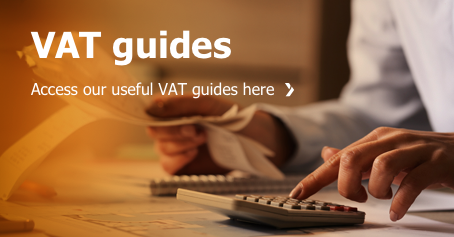Bahrain VAT Guide

Ankur Jain
Bahrain VAT specialist
This guide is an overview of the Bahrain’s Value Added Tax (“VAT”) system, focused on how it affects foreign businesses trading with Bahrain. It is general in nature and unlikely to cover the specifics of your scenario. It should be read as such and not be construed as advice. For advice as to how your business is affected by Bahrain VAT, please contact a MMJS Bahrain VAT specialist.
- What is the tax called?
- What is the tax authority?
- What type of tax is it?
- What is it due on?
- What are the VAT rates?
- What does a VAT number look like?
- Is there a registration limit?
- When does a non-established entity need to register?
- When is the place of supply in the Bahrain?
- Any special rules?
- Does a non-established entity need a fiscal representative?
- How often do VAT returns need to be submitted? Are penalties imposed for late registration?
- Are penalties imposed in other circumstances?
- Can VAT incurred by overseas businesses be recovered?
- Can VAT be deducted?
- Do I need to issue an invoice?
- Other
What is the tax called?
VAT – Value Added Tax
What is the tax authority?
National Bureau for Revenue (NBR)
What type of tax is it?
Consumption based tax on consumers, on business transactions and imports
What is it due on?
Taxable turnover – VAT is added to the value of supplies of goods and services where the ‘place of supply’ is Bahrain
What are the VAT rates?
Taxable:
10% – default (standard) rate
0% – zero-rate
Exempt:
Exemptions for specific services/goods
0% – zero-rate
- Exports of goods and services
- Domestic and international transportation
- Basic food items
- Healthcare
- Education
- Construction services for new buildings
- Domestic oil and gas
- Precious stones, Investment gold, silver and platinum
Exempt:
- Financial Services
- Supply of bare land and buildings by way of sale or rental
What does a VAT number look like?
2XXXXXXXXXXXXXX (fifteen digits)
Is there a registration limit?
Mandatory registration threshold for resident in Bahrain – Taxable supplies of BHD 37,500 (USD 99712.562) during the 12 preceding months or expected in the next 12 months.
Voluntary registration threshold for resident in Bahrain – Taxable supplies of BHD 18,750 (USD 49856.281) during the 12 preceding months or expected in the next 12 months.
Registration threshold for non-resident in Bahrain – Nil
When does a non-established entity need to register?
Non-established entity would be obligated to register for VAT in Bahrain if they start making taxable supplies in Bahrain where no one else is liable to account for the VAT due on such supplies.
When is the place of supply in the Bahrain?
Goods:
– If the goods were placed at the disposal of the customer in Bahrain, where the supply is made without transport or dispatch.
– If the goods were present in Bahrain at the start of their transport or delivery, where they are supplied with transport or dispatch, whether the transfer was done by the supplier or on behalf of the customer.
– If the installation or assembly of the goods supplied was carried out in Bahrain.
Services:
– The place of supply of services shall be Bahrain where the taxable Supplier is resident in Bahrain and the customer is not a taxable person and is not registered for tax purposes in any other GCC state.
Any special rules?
The VAT Law sets out special place of supply rules for services. These rules are summarized below:
– Service: Rental of a means of transport to a customer who is not a taxable person
– Place of supply: Where the means of transport is placed at the disposal of the non-taxable customer.
– Service: Transport of goods, passengers and services related to such transport
– Place of supply: Where the transport starts.
– Service: Restaurant, hotel, catering, cultural, artistic, sporting or recreational events.
– Place of supply: Where the service is actually performed.
– Service: Services related to moveable goods supplied by a supplier in Bahrain to a customer which is a not a taxable person in GCC state.
– Place of supply: Where the service is actually performed.
– Service: Related to real estate.
– Place of supply: Where the real estate is located.
– Service: Telecommunications and electronic services.
– Place of supply: Where the services are used and enjoyed, to the extent of such use and enjoyment.
Does a non-established entity need a fiscal representative?
Fiscal representation is required for non-established entity in Bahrain. A non-established may appoint a tax representative resident in Bahrain, duly approved by the NBR, to act as tax representative, by way of an official power of attorney.
How often do VAT returns need to be submitted? Are penalties imposed for late registration?
Monthly – Entities having taxable turnover equal to or greater than BHD 3 million (USD
7977004.954) per annum.
Quarterly – Entities having taxable turnover below BHD 3 million (USD
7977004.954) per annum,
Annually (Optional) – Entities having taxable turnover below BHD 100,000 (USD 265900.165) per annum.
Failure to apply for registration within the stipulated deadline will attract a penalty not exceeding BHD 10,000 (USD 26590.017).
Are penalties imposed in other circumstances?
– Late submission of a VAT Return or late payment of the VAT due, within the prescribed period not exceeding 60 days will attract a fine between 5% and 25% of the value of the VAT which should be declared or paid.
– Submission of false data on imports or on the supply of goods and services performed where their value is higher than the value declared in the VAT Return will attract a fine between 2.5% and 5% of the value of the unpaid amount of VAT for each month or part thereof for which the VAT was not paid.
– An administrative fine not exceeding BHD 5,000 (USD 13295.008) may be charged for the following offences:
– Failure to notify the NBR of changes in registration application data or VAT Return information within the specified period.
– Failure to show the price of goods or services inclusive of VAT.
– Not providing information or data requested by the NBR.
– Failure to comply with the conditions and procedures for issuing a Tax Invoice.
– Breaching any other provision of the VAT Law or its Regulations.
Can VAT incurred by overseas businesses be recovered?
Non-Resident Persons that are not registered for VAT in Bahrain may claim a refund on the VAT paid on purchases made within Bahrain if following criteria is met:
- The refund applicant is not registered or obliged to register for VAT in Bahrain
- The refund applicant is registered for VAT or any other similar tax in their country of residence
- The refund applicant is entitled to claim a VAT refund if the total VAT claimed is equal to BHD 200 (USD 531.800) or more
- The VAT refund is being claimed for supplies used to conduct their business activity
- The refund applicant has not already submitted a refund application for the same calendar year
Can VAT be deducted?
A taxable person is entitled to deduct input VAT paid or payable by him on costs incurred while carrying out his economic activity for the purposes of making taxable supplies, including supplies subject to the zero rate.
VAT on expenditure used in connection with exempt supplies cannot be deducted.
Do I need to issue an invoice?
A taxable person must issue VAT invoices in respect of supplies of goods and services made by him in Bahrain, whether these supplies are made to resident persons or to non-resident persons.
Other
Bahrain VAT law provides for concept of reverse charge mechanism.
Under the reverse charge mechanism, the VAT liability for certain taxable supplies is shifted from the supplier to the customer. The customer, if registered for VAT in the Bahrain imports services for the purposes of his business, he shall be treated as making a taxable supply to himself and shall be responsible for all applicable tax obligations and accounting for due tax in respect of such supplies.
In Bahrain, the reverse-charge mechanism is applicable by default for supplies of services subject to VAT in Bahrain when purchased by a customer registered for VAT in Bahrain from a supplier who is non-resident in Bahrain.
From a practical point of view, the reverse charge mechanism allows for a non-resident supplier to supply goods or services subject to VAT in Bahrain without being required to register for VAT in Bahrain.

